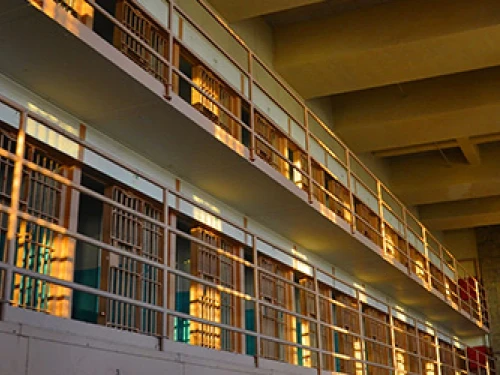Cybersecurity
Kent State University offers cutting-edge online programs to meet the growing demand for cybersecurity expertise. With offerings like the 100% online Computer Forensics and Information Security Undergraduate Certificate and the Bachelor of Science in Cybercriminology, students can explore a multidisciplinary approach to digital security and cybercrime. These programs prepare learners for critical roles in combating evolving cyber threats while addressing the technical and social aspects of cybersecurity challenges.
Related Blog Posts
Shelley Marshall is a Senior Lecturer in Information Technology and Cybersecurity at Kent State University and serves as co-coordinator of Kent State’s online Bachelor of Science in Cybercriminology. With a career that bridges industry experience and higher education, she plays a key role in shaping a program that prepares students to navigate the complex intersection of technology, crime, and justice.
The rise of cybercrime has created an unprecedented demand for skilled professionals who can protect digital systems, investigate cyber offenses, and ensure justice in the digital realm. With an online Bachelor of Science in Cybercriminology from Kent State University, graduates are well-equipped to pursue a variety of career paths in cybersecurity, law enforcement, and private sector security.
In today’s technology-driven world, cybercrime is on the rise, and organizations across industries are in urgent need of skilled professionals who can prevent, investigate, and mitigate digital threats. If you’re looking to pursue a career at the intersection of technology and criminal justice, Kent State University’s 100% online Bachelor of Science in Cybercriminology equips students with the essential skills to thrive in this growing field.
In today’s digital world, crime no longer happens solely in physical spaces—cybercriminals operate in the vast and complex realm of cyberspace, targeting individuals, businesses, and even governments. As a result, the growing field of cybercriminology has emerged to combat these evolving threats by blending expertise from technology, cybersecurity, and criminology.
In today’s digital age, cybercrime has become one of the most pressing challenges for governments, law enforcement agencies, and private sector organizations. As cyber threats continue to evolve and grow in complexity, the demand for skilled professionals who can combat cybercrime and protect sensitive data is at an all-time high. If you’re looking for a dynamic and rewarding career in this critical field, now is the perfect time to pursue an online Bachelor of Science in Cybercriminology from Kent State University.
In a world where cyber threats are on the rise and the demand for data protection has never been higher, there’s never been a better time to gain expertise in digital security. Kent State University’s 100% online Computer Forensics and Information Security Undergraduate Certificate offers students and professionals alike the opportunity to dive into the rapidly growing fields of cybersecurity and digital forensics—all in a 100% online format.
As technology continues to evolve, so do the challenges and threats associated with cybercrime. From hacking and identity theft to ransomware attacks and online fraud, cybercrime poses significant risks to individuals, businesses, and governments. To address this growing issue, Kent State University’s 100% Online Bachelor of Science in Cybercriminology program takes a unique, multidisciplinary approach to prepare the next generation of cybersecurity professionals.
In today’s interconnected world, where cyber threats are constantly evolving, there is a growing demand for professionals who can understand and address both the technical and social aspects of cybercrime. Kent State University is excited to announce its new 100% online Bachelor of Science in Cybercriminology, one of the few programs in the U.S. that combines information technology with criminology to meet the needs of this rapidly expanding field.
The question, “Do prisons have air conditioning?” isn’t something that the public would typically ask, but it’s an important topic for those interested in criminology and the criminal justice system to consider. The treatment of prisoners is paramount, as it affects multiple, diverse aspects of incarceration.
In a culture ever more dependent on technology and the internet—for education, work, entertainment, and connection to our communities—it should come as no surprise that people behave online much as we do in person: with a mixture of kindness and cruelty, combining the best and worst of human intentions.











